

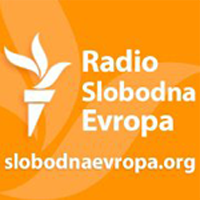
Sorry, this entry is only available in srpski.
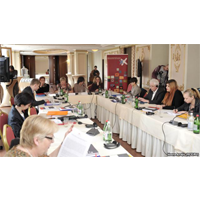
On Friday April 24th, 2015, the Humanitarian Law Center (HLC) held a conference History textbooks in post-conflict societies: Education for reconciliation? The HLC’s aim was to contribute to the debate on the role of education in the process of dealing with the past and overcoming its heavy legacy, and the actualization of the issue to do with the contents of history textbooks regarding the wars and war crimes committed on the territory of the former Yugoslavia during the 1990’s. Experts in the fields of history, political studies, law, sociology, and philosophy, many of whom have already made their contributions to the analysis of the content of history textbooks, were invited. The participants were invited to offer their answers to the problem of how historiography today values the judicial facts about war crimes, why most of the textbooks ignore these facts, which historical sources are relevant for the wars waged during 1990’s, and what the role of the voluminous material now available about war crimes, collected by the International Criminal Tribunal for the Former Yugoslavia (ICTY), might be in the creation of a common historical memory of all societies in the former Yugoslavia.

 The Humanitarian Law Center (HLC) sent today to the Ministry of Justice of the Republic of Serbia the comments regarding the third draft Action Plan for Chapter 23 – Judiciary and Fundamental Rights. The HLC’s comments relate to the development of measures from the Action Plan for the purpose of creating conditions for a more comprehensive prosecution of war crimes and protection of victims’ rights.
The Humanitarian Law Center (HLC) sent today to the Ministry of Justice of the Republic of Serbia the comments regarding the third draft Action Plan for Chapter 23 – Judiciary and Fundamental Rights. The HLC’s comments relate to the development of measures from the Action Plan for the purpose of creating conditions for a more comprehensive prosecution of war crimes and protection of victims’ rights.
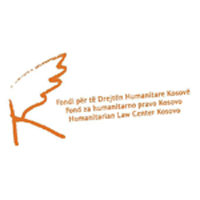
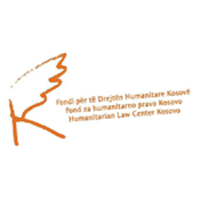 On the occasion of National Day of Missing Persons, the Humanitarian Law Center of Kosovo (HLC Kosovo) requires from the Government of Kosovo more commitment in shedding light on the fate of the missing persons, also requires from the relevant institutions to do more in addressing the criminal responsibility.
On the occasion of National Day of Missing Persons, the Humanitarian Law Center of Kosovo (HLC Kosovo) requires from the Government of Kosovo more commitment in shedding light on the fate of the missing persons, also requires from the relevant institutions to do more in addressing the criminal responsibility.

Sorry, this entry is only available in srpski.

Sorry, this entry is only available in srpski.
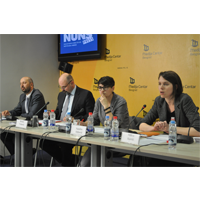
 On April 23rd 2015 the Humanitarian Law Center (HLC) presented the Model Strategy for the Prosecution of War Crimes Committed during and in relation to the Armed Conflicts in the Former Yugoslavia (Model Strategy).
On April 23rd 2015 the Humanitarian Law Center (HLC) presented the Model Strategy for the Prosecution of War Crimes Committed during and in relation to the Armed Conflicts in the Former Yugoslavia (Model Strategy).

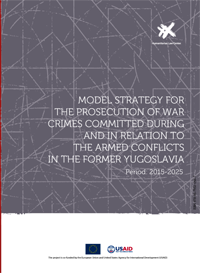 The objective of the Model Strategy for the Prosecution of War Crimes Committed during and in relation to the Armed Conflicts in the Former Yugoslavia (Model Strategy) is to stimulate the relevant institutions to adopt an official state strategy for the prosecution of war crimes committed in the armed conflicts during the 1990’s on the territory of the former Yugoslavia, and provide a comprehensive, informative and objective contribution to the production of this Strategy.
The objective of the Model Strategy for the Prosecution of War Crimes Committed during and in relation to the Armed Conflicts in the Former Yugoslavia (Model Strategy) is to stimulate the relevant institutions to adopt an official state strategy for the prosecution of war crimes committed in the armed conflicts during the 1990’s on the territory of the former Yugoslavia, and provide a comprehensive, informative and objective contribution to the production of this Strategy.

 The ninth issue of the bulletin through ACCESSION towards JUSTICE has been published!
The ninth issue of the bulletin through ACCESSION towards JUSTICE has been published!
The ninth issue of the Bulletin conveys a discussion with the European Parliament Rapporteur on Serbia, Mr David McAllister, regarding the necessity of dealing with the legacy of the past for a state striving to become an EU member, and current endeavours to establish and apply mechanisms of transitional justice in Serbia.
A researcher at the University of Magdeburg, Ms Katarina Ristić, analyzes the consequences of the policy of conditionality demanding from Serbia to cooperate with ICTY, which has been applied by the EU for years, and its contribution to the recognition and acknowledgment of responsibility for crimes committed during the armed conflicts in the former Yugoslavia.
The column dedicated to the news contains an overview of the most recent events in the field of transitional justice and Serbia’s EU integration process in the period January – April 2015.
Send us your opinion and comments on the bulletin and/or topics that it initiates to the e-mail address towardsJUSTICE@hlc-rdc.org. Discussion is also welcome on Twitter/#towardsJUSTICE.
Download your copy of the bulletin here.